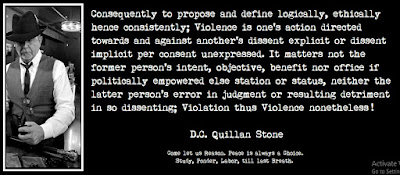Monday, May 23, 2022
Wednesday, May 18, 2022
Tuesday, May 17, 2022
Monday, May 16, 2022
Sunday, May 15, 2022
Saturday, May 14, 2022
Friday, May 13, 2022
Wednesday, May 11, 2022
Sonnet 6 by George Boole (mathematician/logician, 1815-1864)
Sonnet 6 by George Boole (mathematician/logician, 1815-1864)... See link for this and other such postings at SubStack.
https://dcquillanstone.substack.com/p/sonnet-6-by-george-boole-mathematicianlogician
Sonnet 6 by George Boole (1815-1865)
To note… Mathematician, philosopher, logician, poet, first professor of mathematics at then newly formed Queen's College Cork (now University College Cork), and astonishingly self-taught for having to brilliantly develop then establish what later became known as Boolean algebra/logic.
Thou that in secret chambers dost portray
The pictures of the past, whence some return,
And some, like ashes in the buried urn,
Lie hid, not lost, till one Diviner Ray
Shall through thy inmost caverns pour the day;
Oh, Memory! If to me thy lessons stern
Sometimes appear, let me not less discern
The deep and wholesome wisdom they convey;
But when the years to vanity betrayed
Rise threat'ning from gulfs to which they fled
Give me to see in each reproachful shade
A messenger, on solemn errand sped;
`Tis not with purpose vain they they invade
The nightly pillow and the wakeful bed.
June 1849
According to Desmond MacHale, Emeritus Professor of Mathematics at University College Cork, in his book The Poetry of George Boole (Oct 2020)...
"On the surface, this sonnet would appear to be a straightforward tribute to the physical and spiritual aspects of memory, but in the light of subsequent events, perhaps it has a deeper significance than even Boole himself may have been aware of. It (Sonnet 6) was written in 1949, between the publications of his two major books, The Mathematical Analysis of Logic in 1847, and The Laws of Thought in 1854. In the hands and fertile mind of Claude Shannon (1916-2001) these books led to an algebraic formulation of the operation of electronic switching circuits and eventually to the invention of the modern digital computer. Boole relates that he was blessed with an almost photographic memory which he later described in the following words:
This does not result so much from strength of memory as from the power of arrangement which provides its proper place in the mind for every fact and idea and thus enables me to find at once what I want just as you would know in a well-ordered set of drawers where to lay your hand in a moment upon any article you required.
In Sonnet 6, was Boole now thinking about the physical process of memory in the human brain, and how information is stored there, and why certain memories 'lie hid but not lost'?"
Hence the necessary prerequisites or building blocks (among others) towards the Digital/Information Age; the refinement of the binary numbering system by Leibniz, the further development of algebra/logic by Boole otherwise known as Boolean algebra/logic, the expansion of truth tables by Wittgenstein, the proliferation of logic gates then formation of the Digital Circuit Design Theory by Shannon, on shoulders and/or in collaboration of many others... (see link above for entire post)
Wednesday, May 4, 2022
Quote and Book by Claude-Frédéric Bastiat
Quote and Book by Claude-Frédéric Bastiat... See link for this and other such postings at SubStack.
Quote below taken from a book I highly recommend entitled THE LAW by Claude-Frédéric Bastiat (1801-1850). Free e-book and e-collection of Bastiat’s work are courtesy of Mises Institute…
“We hold from God the gift that, as far as we are concerned, contains all others, Life—physical, intellectual, and moral life.
But life cannot support itself. He who has bestowed it, has entrusted us with the care of supporting it, of developing it, and of perfecting it. To that end, He has provided us with a collection of wonderful faculties; He has plunged us into the midst of a variety of elements. It is by the application of our faculties to these elements that the phenomena of assimilation and of appropriation, by which life pursues the circle that has been assigned to it are realized.
Existence, faculties, assimilation—in other words, personality, liberty, property—this is man.
It is of these three things that it may be said, apart from all demagogic subtlety, that they are anterior and superior to all human legislation.
It is not because men have made laws, that personality, liberty, and property exist. On the contrary, it is because personality, liberty, and property exist beforehand, that men make laws. What, then, is law? As I have said elsewhere, it is the collective organization of the individual right to lawful defense.”
Sunday, May 1, 2022
Vox Humana Unius Vox Humana Alterius Non
Vox Humana Unius Vox Humana Alterius Non... See link for my weekly article at SubStack.
https://dcquillanstone.substack.com/p/vox-humana-unius-vox-humana-alterius?s=w
So it follows (to reiterate), one’s human voice certainly is not the same as God’s voice or in Latin vox humana vox dei non, nor one’s human voice the same as another’s human voice or also in Latin vox humana unius vox humana alterius non. The finiteness of humanity, nay the precise position ergo finiteness of each and every individual’s space (x,y,z) at any given moment in time (t), preempts observably, logically, consistently any conjured justification to presume to think, speak then act on behalf of God or another individual....
Subscribe to:
Comments (Atom)











